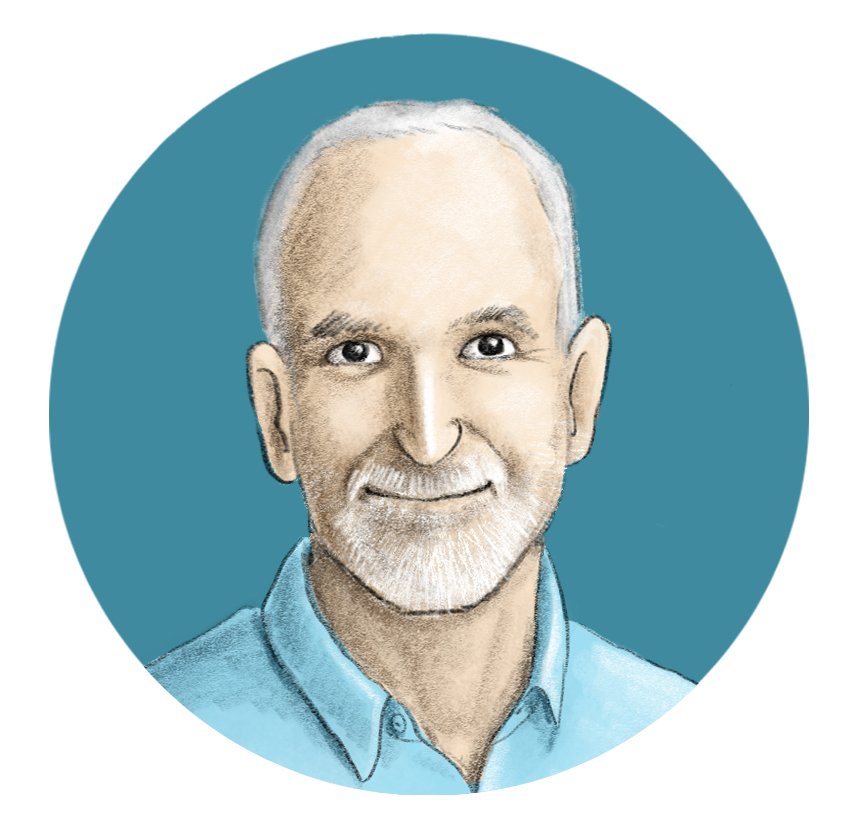“Has God trusted you with a silence — a silence that is big with meaning? God’s silences are His answers... His silence is the sign that He is bringing you into a marvelous understanding of Himself. ”
Prayer doesn’t always come naturally.
During the first fifty years of my life, the prayers of believers seemed to me merely pious nonsense offered up into the void. My late wife, Teri, had had a blissful faith as a child, which she lost in her teenage years. So, when she and I finally came into the Light and gave ourselves to Christ, we had to learn—or in her case, relearn—how to pray.
Years later, I used our post-conversion struggles in writing Hearts Set Free. The following passage is from a conversation between Joan Reed, who is modeled after Teri, and pastor Daniel Gold:
“I used to pray with my father when I was a child,” Joan said to Daniel. “I’ve only just begun to pray again, and it’s awkward now; I’m so aware of myself, when it used to be natural, like play.”
“The awareness inhibits your prayer,” said Daniel, “so you’re thinking of it as something bad. But what if you could learn from it?”
At first, self-awareness simply felt uncomfortable. Wasn’t prayer supposed to be about asking things of God, perhaps with some praise thrown in? And where were the answers to my questions, the responses to my requests?
Not long after the passage above, Joan expresses more of her frustration to Daniel:
“The hardest thing is the silence that follows prayer. It’s overwhelming at times, God’s silence.”
There had been a time when she sought quiet, the sanctuary of hushed places, but now that was something that filled Joan with dread. The deathly stillness of home after Jesse left was a void, a silent darkness at the center of her life. Sometimes she cried out; at least then she could hear her own voice. So she filled the silence with whatever was at hand: television in her bedroom, radio in her car, a lover at work.
“You’re not alone,” said Daniel. “It was the silence of God that led to King David’s lament:
My God, my God, why have You forsaken me?
Why are You so far from saving me,
from the words of my groaning?
O my God, I cry by day, but You do not answer;
and by night, but I have no rest.
“And Jesus faced that silence on the Cross when he echoed David’s words; it was the cup His Father would not let pass. But here I am, talking as though I were leading a Bible study, and you’re in pain.”
Joan realized with a start that her eyes were burning with tears.
As I fumbled my way to learn how to open my heart to God—no distant ruler of the cosmos, but Abba, our loving Father, closer than breathing—I realized that in God’s silence I was ever more self-aware, and the more I understood myself, the more I realized my need for Him.
Daniel Gold puts it this way in his discussion with Joan:
“You know, prayer is a wonderful antidote to self-deceit—at least, if we listen to our own babblings, and babble from the heart. For we reveal our dreams and desires and foolishness and fears, not only to God but to ourselves. Don’t be concerned how your words come out; there’s no one who knows just the right words. That’s why Jesus sent the Helper, the Holy Spirit, whose wordless groanings deep inside of us are the prayers we know not how to pray. And if we nourish ourselves with God’s word, then, in His silence, the Spirit makes known to us the mind of Christ.”
When Teri was diagnosed with ALS, we both prayed for a miracle cure. On one level, our prayers were met with silence: like so many before and after her, there was no cure. But still, Teri knew, even more than I did, that God was with us in that silence, and trusted utterly in Him.
There came a day when we needed to make some complicated repairs to our home. After much searching, I finally found a contractor I had confidence in, only to have the man call me at the last minute to tell me he couldn’t come personally and was sending a substitute instead. I wasn’t at all pleased! But not long after the substitute repairman showed up, we found out he was also an assistant pastor at a local church, and he led us to the writings of a man whom we hadn’t previously discovered: Oswald Chambers, the Scottish evangelist and teacher who is quoted at the top of this page. Chambers’ books were a gift to us from God, giving us the glorious riches of a greater understanding of Himself.
He always answers prayer; not in the way we might expect, not with the things we wish for, not on our terms or our timing, but in the way that is best.
Jess Lederman
jess@jesslederman.com

